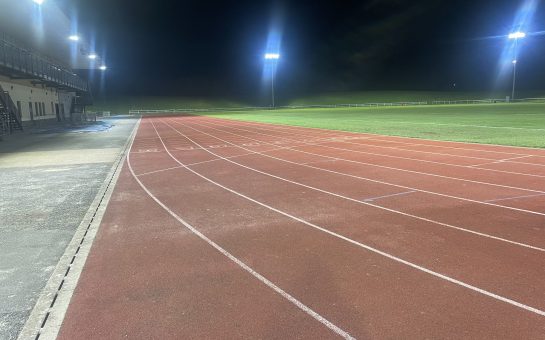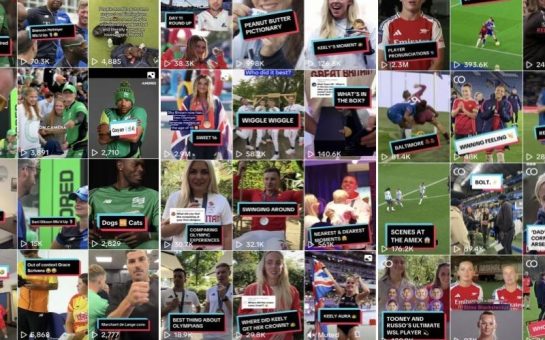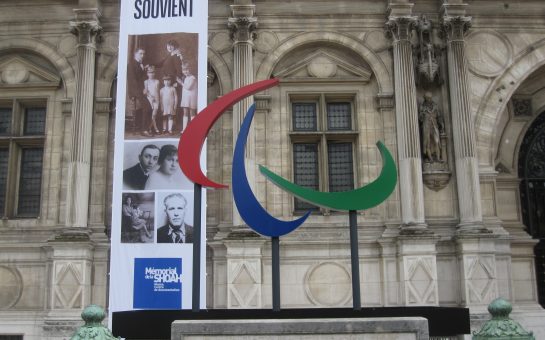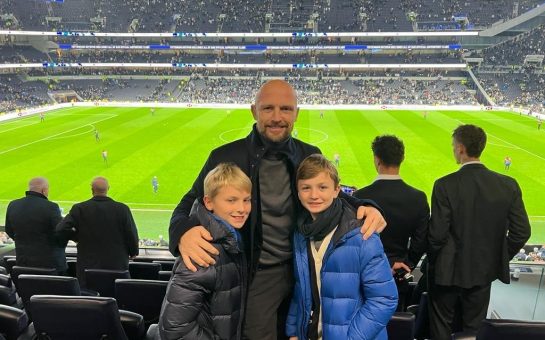With the Winter Paralympics kicking off in Beijing tomorrow, SWLondoner takes a closer look at four GB Paralympians hoping for a medal.
James Barnes-Miller, para-snowboarder competing in snowboard cross and banked slalom (SB-UL)
Growing up surfing and skateboarding in Broadstairs meant that James Barnes-Miller was a natural when he first tried snowboarding on a 2010 holiday to Bulgaria.
Before long, Barnes-Miller was competing on the international stage, finishing fourth in snowboard cross at the World Championships in Big White, Canada on his debut at that level.
Self-styled as ‘Stubber’, a nod to his incomplete right-arm, Barnes-Miller was the first ever British snowboarder to compete at the Paralympics in Pyeongchang, and has since racked up a host of World Cup and World Championship medals, including the Crystal Globe as the overall World Cup snowboard cross leader in 2020.
But it has not always been easy for the 32-year-old, who has broken his leg, collarbone and dislocated his shoulder during his career.
Additionally, he had £10,000 worth of equipment stolen just three months before the Paralympics in 2018.
Barnes-Miller comes into these Games in fine fettle, securing one silver and two bronze medals in January at the World Championships in Lillehammer, Norway and will be hoping to carry his good form to Beijing in March.
Menna Fitzpatrick, para-alpine skier competing in the slalom, super G, giant slalom and super combined (B2)
It took just one Games for Menna Fitzpatrick to become the most decorated British Winter Paralympian of all time.
The alpine skier dazzled on debut in PyeongChang, claiming a slalom gold, super combined silver, giant slalom silver and super-G bronze medal aged only 19.
In doing so, Fitzpatrick became the second ever ParalympicGB athlete to win gold at a Winter Games.
Four years on and the 23-year-old is gunning for more in Beijing: one more medal would take her haul to five, a historic total.
Speeding down the slopes at 60 miles per hour with approximately 5% vision, Fitzpatrick has continued to impress on the alpine circuit since Pyeongchang, winning three golds, three silvers and two bronze medals in World Championships.
In 2021, she won slalom gold and super combined silver at the World Championship in Lillehammer alongside her guide Katie Guest, after they teamed up that year.
But the road to Beijing has proved no cakewalk: shortly before the Covid-19 pandemic the athlete broke her tibia in a race at the British World Championships, forcing her to rehabilitate midway through the lockdown.
Having battled to a full recovery, Fitzpatrick is now eager to follow in the footsteps of her idol and five-time Olympic rowing champion Sir Steve Redgrave.
Millie Knight, para-alpine skier competing in the slalom, super G, downhill, giant slalom and super combined (B2)
Millie Knight is one of ParalympicsGB’s hottest prospects for a medal this year after winning two silvers and a bronze in 2018 at Pyeongchang.
Aged one, Knight contracted an illness in her right eye, which was only diagnosed two years later.
By the time she turned six, she had lost most of her vision in both her eyes: Knight now has 5–10% peripheral vision in her left eye, and in her right, 5%.
Knight has already written herself into the history books by competing at the 2014 Winter Paralympics in Sochi when she was just 15 years old.
There, she had the privilege of being the flag bearer for ParalympicsGB at the opening ceremony.
While Knight came home without honours in Sochi, her medal haul at Pyeongchang, which saw her win two silvers in super G and downhill and a bronze in the slalom, has many optimistic of a similar achievement this year.
Canterbury-born Knight has been ranked as the world number one in the downhill event, so gold medal aspirations may not be too far-fetched this month.
Despite crashes in recent competitions knocking her confidence, Knight and her guide Brett Wild – who serves in the Royal Navy and was released to guide her at this year’s Winter Games – will be looking to put those setbacks behind her as she strives to finally get the gold medal she desires.
Hope Gordon, para-Nordic skier competing in cross-country (LW12)
Three of Britain’s five Nordic skiers are making their debut at the Winter Paralympics, but Hope Gordon is surely the latest Paralympian to the sport.
The Scot only picked up the event last year, having previously competed in para-swimming and para-canoeing, but was convinced to swap her paddle for skis by fellow team member Scott Meenagh.
Gordon was diagnosed with complex regional pain disorder aged 12, causing excruciating pain in her legs. She decided two years after her diagnosis that she wanted to have her leg amputated, against NHS advice.
After raising £10,000 through crowdfunding, in August 2016 Gordon was able to have her left leg amputated above the knee.
Gordon initially competed in para-swimming, but decided to pursue other sports after missing out on a place in the Scottish team for the 2018 Commonwealth Games.
Having taken up para-canoeing, Gordon’s dreams of competing at the Tokyo Olympics were dashed after pain prevented her from qualifying, although she intends to compete at the 2024 Summer Games in Paris.
Her background in canoeing, Gordon believes, helps her speed across the snow and now she finally has the chance of realising those Paralympic dreams in Beijing.
Featured image credit: Caroline Granycome via Flickr under CC BY-SA 2.0 license




